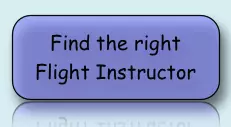Hi everyone!
One of the most common topics I’m asked about is the FAA medical. So, if you’re a bit confused about this topic, here is some information that will help you figure it all out!
- What is an FAA Medical
- What type of FAA Medical do I need
- What do I need to pass an FAA medical
- How often do I need to get an FAA Medical exam
- Where do I get an FAA Medical
- How much does an FAA Medical cost
Let’s get started….
What is an FAA Medical
Under the Federal Aviation Regulations, pilots are required to meet certain medical requirements. Depending on what type of pilot you are, you will need to pass a certain type of medical exam.
What type of FAA Medical do I need
There are three types of medical certificates:
- First Class – for airline captains
- Second Class – for pilots who get paid for flying, but are not airline captains
- Third Class – for private pilots
From the FAA’s website (http://www.faa.gov/licenses_certificates/medical_certification/faq/response4/), here is how you can determine which type of FAA medical to get:
- A first-class airman medical certificate is required to exercise the privileges of an airline transport pilot certificate.
A first class medical certificate is valid for the remainder of the month of issue; plus
- 6 calendar months for operations requiring a first class medical certificate if the airman is age 40 or over on or before the date of the examination, or
- 12-calendar months for operations requiring a first-class medical certificate if the airman has not reached age 40 on or before the date of examination, or
- 12 calendar months for operations requiring a second class medical certificate, or
- 24 calendar months for operations requiring a third class medical certificate if the airman is age 40 or over on or before the date of the examination, or
- 60 calendar months for operations requiring a third class medical certificate if the airman has not reached age 40 on or before the date of examination. *
- A second-class airman medical certificate is required for commercial, non-airline duties (e.g., for crop dusters, corporate pilots) and is valid for 1 year plus the remainder of the days in the month of examination. Those exercising the privileges of a flight engineer certificate, a flight navigator certificate, or acting as air traffic control tower operator must hold a second-class airman medical certificate.
A second class medical certificate is valid for the remainder of the month of issue; plus
- 12 calendar months for operations requiring a second class medical certificate, or
- 24 calendar months for operations requiring a third class medical certificate, if the airman is age 40 or over on or before the date of the examination, or
- 60 calendar months for operations requiring a third class medical certificate if the airman has not reached age 40 on or before the date of examination. *
- A third-class airman medical certificate is required to exercise the privileges of a private pilot certificate, recreational pilot certificate, a flight instructor certificate, or a student pilot certificate.
A third-class medical certificate is valid for the remainder of the month of issue; plus
- 24 calendar months for operations requiring a third class medical certificate, if the airman is age 40 or over on or before the date of the examination, or
- 60 calendar months for operations requiring a third class medical certificate if the airman has not reached age 40 on or before the date of examination. *
What do I need to pass an FAA medical
The FAR’s (Federal Aviation Regulations) list the requirements for each type of Medical Certificate.
You can find these here:
http://ecfr.gpoaccess.gov/cgi/t/text/text-idx?c=ecfr&tpl=/ecfrbrowse/Title14/14cfr67_main_02.tpl
Here is a summary of what you need depending on the type of medical you need:
NOTE: this is just a quick overview, you should read the full FARs for more detailed information
Medical Requirements overview
Eye – With or without corrective lenses, distant Vision 20/20 for First & Second Class, distant vision 20/40 for Third Class, near vision 20/40
Ear, Nose, Throat, Equilibrium – demonstrate acceptable hearing, no disease that affects equilibrium
Mental – no personality disorders, psychosis, delusions, bipolar disorders, or substance abuse
Neurologic – no epilepsy, disturbance of consciousness, transient loss of control of nervous system, seizures
Cardiovascular – no heart attacks, heart disease, angina pectoris, or pacemakers
General – no diabetes, or anything else the examiner thinks will make you an unsafe pilot
So what happens if you are denied a medical certificate???
If you have reason to believe that your application should not have been denied, you can appeal. The process is lengthy and may take several months (as does anything with the FAA). FAR 67.409 talks about the appeal process.
What if you have reason to believe that you won’t pass an FAA medical??? Are you doomed to be a ground dweller forever?
Not exactly. If you have never been denied an FAA medical certificate, you can become a Sport Pilot. The Sport Pilot Certificate allows you to fly small aircraft that are classified as LSA’s or Light Sport Aircraft. These airplanes have several restrictions, but for the most part, these are:
Cannot weigh more than 1,320lbs
Cannot have the ability to fly faster than 120 knots (about 139 mph)
Cannon carry more than one passenger
To find out more about LSA’s and Sport Pilot Certificates, Click Here (http://www.sportpilot.org/learn/final_rule_synopsis.html)
Medically, you still have to be fit to fly, however, you only need a current driver’s license to prove this.
How often do I need to get an FAA Medical exam
Because the rules the duration of FAA Medicals have gotten so complex, the FAA has come up with this table (http://ecfr.gpoaccess.gov/cgi/t/text/text-idx?c=ecfr&rgn=div8&view=text&node=14:2.0.1.1.2.1.1.17&idno=14) to help you figure out how long your medical will be valid:
Where do I get an FAA Medical
To search for a nearby medical examiner, you can search for one on the FAA website: http://www.faa.gov/pilots/amelocator/
However, since every AME (Aviation Medical Examiner) is different they have some latitude in determining whether you meet the requirements or not, be sure to ask some local pilots who they recommend.
How much does an FAA Medical cost
Each medical examiner will set his/her own price for each type of medical certificate.
My experience has been that they cost in the range of $95 – $140.
Are you ready to find a Flight School? Check out this info:


